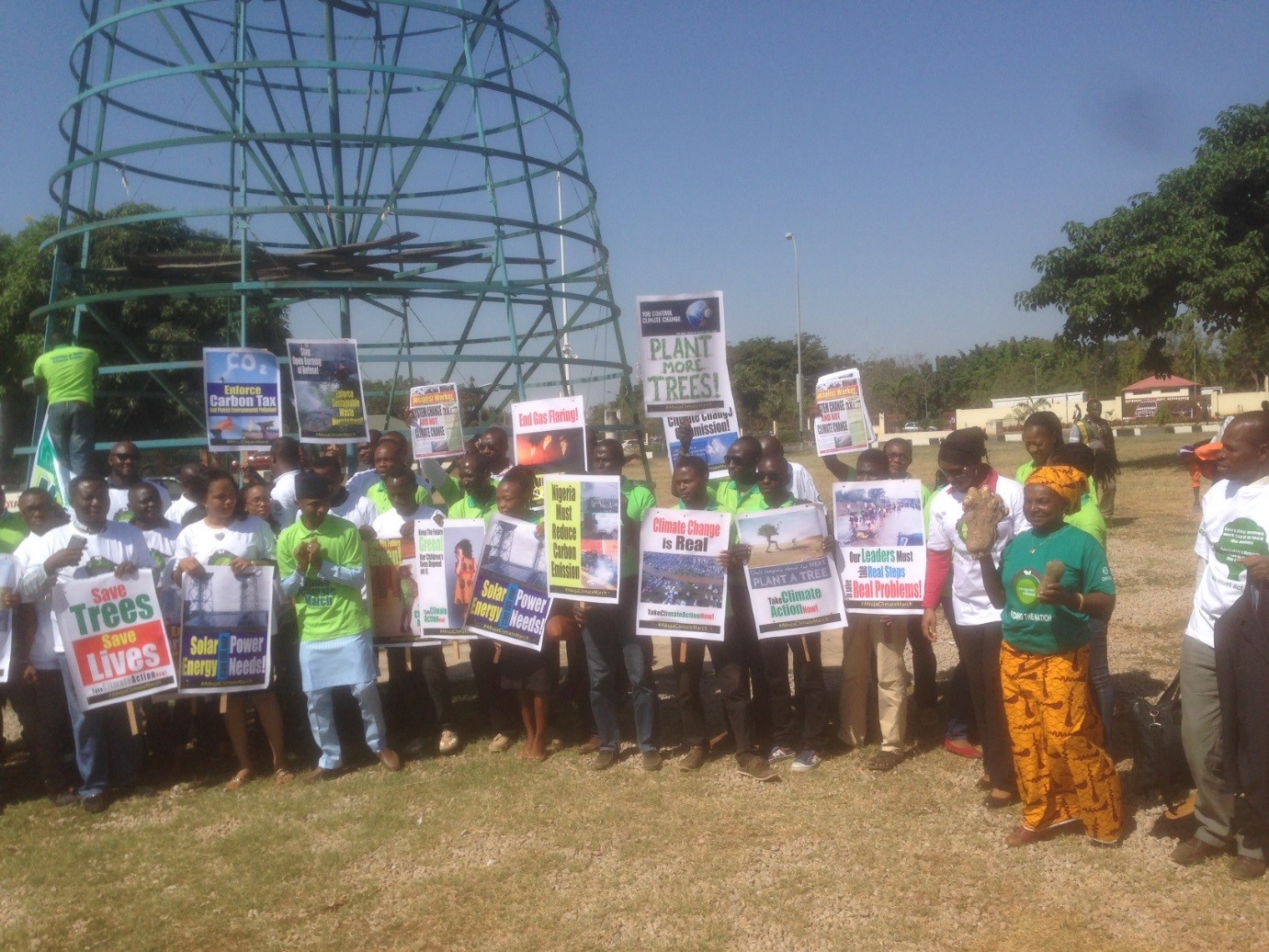by Drew Povey and Segun Ogun
 Most governments in the world signed up to the Paris agreement in mid-December. This claimed a goal of keeping global temperature rises well below two degrees centigrade and even to “pursue efforts” to keep them below 1.5°C. In reality, the plans put forward will result in increases of around three degrees by the end of this century – a disaster for millions of poor people across the world.
Most governments in the world signed up to the Paris agreement in mid-December. This claimed a goal of keeping global temperature rises well below two degrees centigrade and even to “pursue efforts” to keep them below 1.5°C. In reality, the plans put forward will result in increases of around three degrees by the end of this century – a disaster for millions of poor people across the world.
There have been huge demonstrations in many cities, but up against the power of the oil companies, the car companies and other entrenched interests it will take a lot more to reduce the effects of climate change.
No limits are to be imposed on emissions from aviation and shipping and the plans put forward by each government will not have to be implemented for another five years. But even then, no government that fails to act on its plans will be punished. As the Financial Times, the paper of the bosses in London, pointed out:
Average global temperatures have already risen by nearly 1°C since the industrial revolution and limiting warming to 1.5°C would require another revolution.
By the time the “nationally determined contributions” are to be implemented in 2020, there will have been three decades of climate change negotiations. But over this period, the level of carbon dioxide in the atmosphere has increased and even the emissions per head have continued to go up. The Financial Times accepts that the “task is now far bigger than it would have been if action could have been taken sooner”.
No wonder that the reaction of many in the fossil fuel industry is that they are still not threatened. However, this will change if the pressure can be kept up as the realities of climate change and its effects becomes clearer and clearer. Campaigners have already translated the 2°C target into a string of demands highlighting the amount of coal, gas and oil that will be required to stay in the ground.
To make the Paris climate agreement meaningful, the world now desperately needs a clear plan for 100% renewables by 2050. This will require action to keep fossil fuels in the ground from this date on – with major implications for oil exporting countries like Nigeria. The annual fund of $100billion, originally promised in 2009, now promised from 2020, will not go far across the whole of the Global South where the poor will continue to suffer the brunt of global warming.
A recent survey found that 65% of Nigerians are already very concerned about the threat of climate change. This is not surprising when the North faces severe droughts, Lake Chad is only 5 per cent the size it was in the 1960s and the Niger Delta could lose over 15,000 square kilometres of land to the sea by the year 2100 – result in 80% of the population being displaced.
Despite these horrors, the Buhari government’s plans submitted to the Paris conference only included an undertaking to “work towards ending gas flaring by 2030”. This activity makes the largest contribution to global warming in Africa, has been generally illegal in Nigeria since 1984, but the former government stopped imposing fines for gas flaring in December 2014.
Another major move in the fight against global warming would be for the majority of women who still depend on the traditional ‘three-stone fire’ to use kerosene. This would be of immediate health benefit to millions of women and contribute to reduced global warming by reducing the use of trees as fuel. However, the government is still talking about stopping fuel subsidies in 2016.
The Polish socialist Rosa Luxemburg declared in the early 20th Century that in the future we faced socialism or barbarism. Climate change provides further evidence of how prophetic she was. If we are not able to change the system, the major companies across the world are going to destroy the lives of millions of people through climate change.
In Nigeria, there is an urgent need for the struggle for climate justice to be taken up with more seriousness by working class-people. The Climate March in Abuja which SWL members participated in was organised by a network of NGOs on November 30. With the way they went about it, it was obvious that for them, this was simply about fulfilling all righteousness for donor funding.
The future of our earth is at stake. The politics of climate change within and outside Nigeria must be taken up with vigour by the trade unions. Workers are worst hit by the destruction of planet earth and should be at the fore of fighting for climate justice in particular and environmental rights in general.








